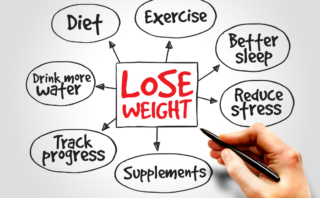What is metabolic adaption as it relates to weight loss?
Metabolic adaptation is your body’s way of adapting to a low energy supply due to a calorie deficiency. A calorie deficiency can come from either increasing exercise or decreasing food intake. From the stand point of weight loss it can best be explained by this scenario, metabolic adaptation is when someone can maintain a caloric deficit for a few weeks or months and successfully lose weight but then weight loss suddenly stops while eating the same number of calories.
Your hormones are effected by metabolic adaptations. Here are a changes occurring when you are in a calorie deficiency.
- Changes in appetite: increases in hunger and reduction in satiety
- Lower Sex Drive
- Impacts to Lean Muscle Retention
- Reduced Metabolic Rate
- Water Retention
- Impacts on Bone Health
Metabolic adaptions are completely normal. Your metabolism is very adaptive. Just like it can decrease through calorie restriction or exercise. It will increase with eating more food and reducing exercise. Reversing metabolic adaptions due to dieting can be done a couple different ways.
- Periodic diet breaks during weight loss phase
- Reversing diet when you reach your weight loss goal
- Recover diet when you reach your weight loss goal
Some Myths About Metabolic Adaption:
- Metabolic adaptions can make weight loss impossible and make you gain weight. Basic laws of thermodynamics will tell you this false.
- Metabolic adaptions are permanent. Your metabolism is not broken. It is adaptive and adjusts.
- You can avoid metabolic adaptions. Metabolic adaptation is your body’s protective mechanism to maintain homeostasis.
While it it your body ingrained nature to adapt based on energy availability there are some ways to minimize adaptations.
4 Ways to Minimizing Metabolic Adaptions:
- Maintain adequate protein intake to take advantage of its thermic effect. About 20-30% of protein calories are burned while the body is digesting and metabolizing the protein.
- Resistance training support building muscle and therefore results in a slightly higher metabolism.
- Implement the smallest possible deficit that yields appreciable weight loss. This allows you to minimize muscle mass losses and keeps energy higher than a deeper deficiency.
- Do not add excessive amounts of cardio. Use cardio as a tool to increase calorie deficiency when calories get low.
If you are interested in practical strategies for weight loss. I recommend this paper by Helms, Aragon & Fitschen: https://jissn.biomedcentral.com/…/10.1186/1550-2783-11-20 . While the paper is written for natural bodybuilders for contest prep I think you find the information very informative.



